





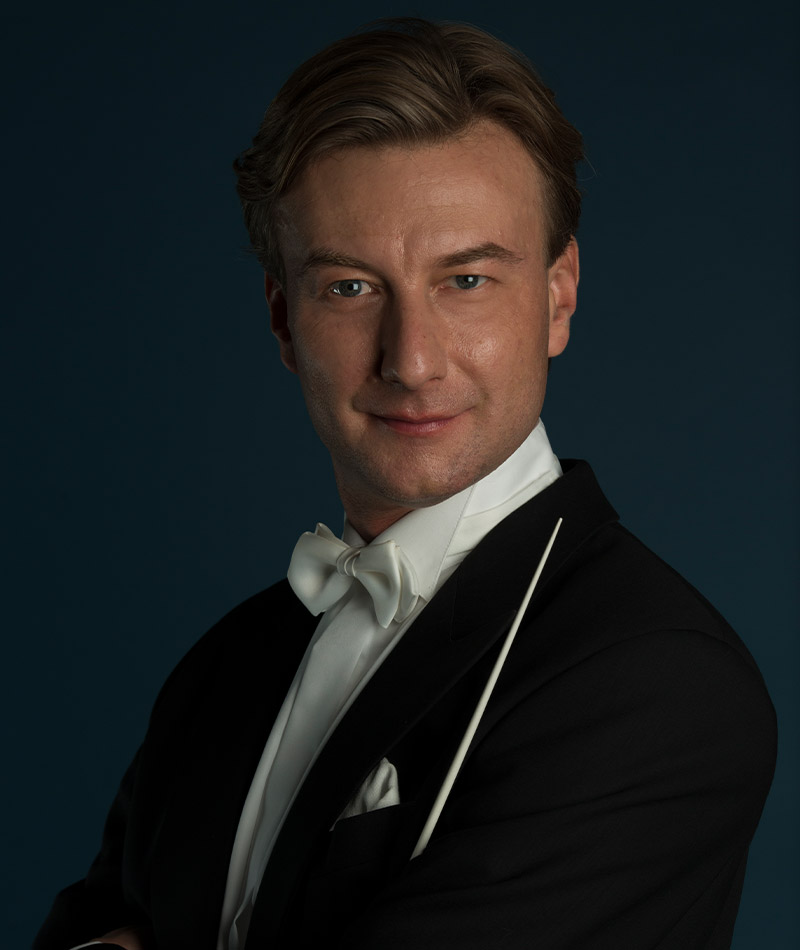
Christian Arming is one of Austria’s most sought after conductors, highly successful in both symphonic and operatic fields. Music Director of the Liege Royal Philharmonic Orchestra from 2011 to 2019, he previously held the same post at the New Japan Philharmonic in Tokyo, at the Lucerne Theatre and Symphony Orchestra and earlier was Chief Conductor of the Janáček Philharmonic in Ostrava. In 2017, he was appointed Principal Guest Conductor of the Hiroshima Symphony Orchestra. From April 2024, he will further develop the partnership with the orchestra as Music Director.
He has conducted many top European and American orchestras, such as Czech Philharmonic, Staatskapelle Dresden, Frankfurt Radio Symphony, Vienna Symphony, Salzburg Mozarteum Orchestra, Orchestre national du Capitole de Toulouse, Orchestre de la Suisse Romande, Boston and Cincinnati Symphonies, and regularly invited to Asia.
Christian Arming’s work has also won many supporters in the operatic world since 1997 when he made his debut at the Salzburg Festival. With the Prague Radio Symphony Orchestra, he presented Dvořák’s Spectres Bride in 2018. He also conducted Pelléas et Mélisande, Léonore, Les Mamelles de Tirésias, Giani Schicchi, Salomé, Eine florentinische Tragödie, Lohengrin and Die Fledermaus.
Christian Arming has a varied discography including works by Janáček, Schubert, Brahms and Mahler. In 2018, his first recording for Deutsche Grammophon was launched.
Christian Arming was born in Vienna and studied conducting under Leopold Hager at the University of Music and Performing Arts in Vienna. Seiji Ozawa has also been a mentor and strong supporter of his career, introducing him to Boston and Tokyo.
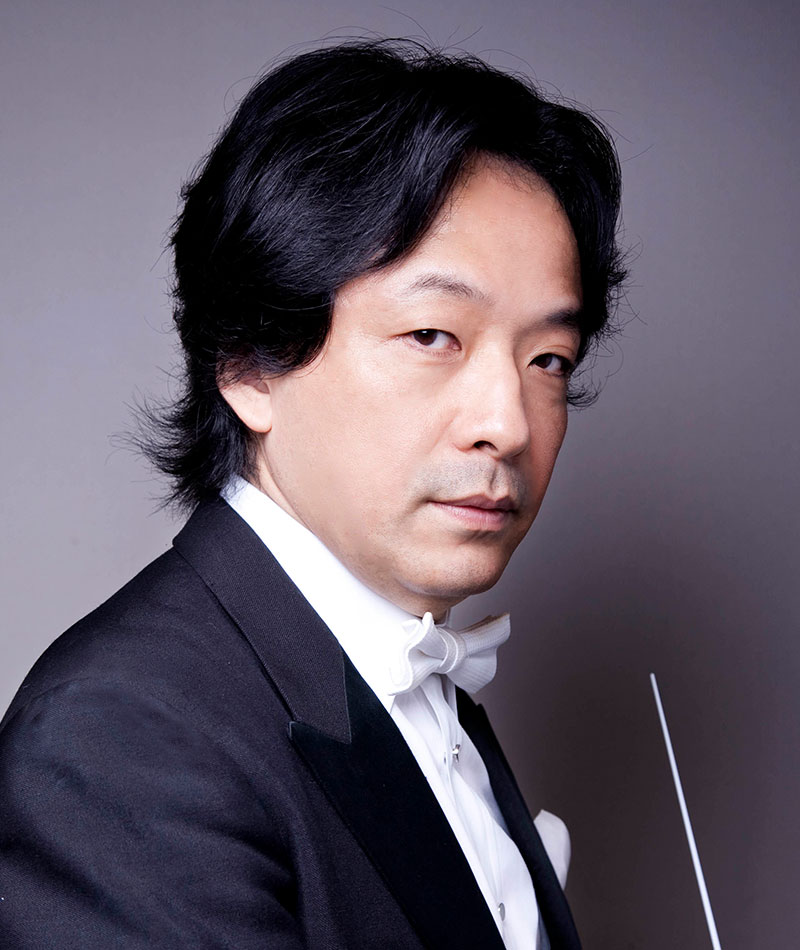
Numajiri is Music Director of the Kanagawa Philharmonic Orchestra, Music Director of the Tokyo Mitaka Philharmonia and the Artistic Director Laureate of Biwako Hall.
When studying in Berlin in 1990, he won the International Besançon Competition for Young Conductors. He has been invited to conduct at various orchestras worldwide, including the London Symphony Orchestra, Montreal Symphony Orchestra, Deutsches Symphonie-Orchester Berlin, Konzerthaus Orchestra Berlin, Orchestre Philharmonique de Radio France, Orchestre du Capitole de Toulouse, Orchestra Sinfonica di Milano Giuseppe Verdi, Orchestra Teatro Lirico Giuseppe Verdi di Trieste, Sydney Symphony Orchestra, and China Philharmonic Orchestra.
Domestically, after his conducting debut at the NHK Symphony Orchestra in Tokyo, he conducted for the Japan Shinsei Symphony Orchestra, Tokyo Philharmonic Orchestra, Nagoya Philharmonic Orchestra, Japan Philharmonic Orchestra, Gunma Symphony Orchestra, and Japan Century Symphony Orchestra. He made his orchestral debut with the Saitō Kinen Orchestra in summer 2011, where he successfully conducted Béla Bartók’s The Miraculous Mandarin.
In Germany, he served as the General Music Director at Theater Lübeck, giving great performances both in operas and concerts with the house orchestra (the Lübeck Philharmonic Orchestra). The German media had particular high praise for his performances of the works of Johannes Brahms, Gustav Mahler, Anton Bruckner, and Wilhelm Richard Wagner.
In his career, he has been awarded the Idemitsu Music Award, Akeo Watanabe Music Foundation Music Award, New Face Award for the Minister of Education Award for Fine Arts, Hideo Saitō Memorial Foundation Award, Mainichi Art Award, Kenzō Nakajima Music Award, Excellence Award for the Arts Festival by Japanese Agency for Cultural Affairs, the Minister of Education Award for Fine Arts, the ENEOS Music Award for Western Music, etc. He was awarded the Medal of Honor with Purple Ribbon by the Emperor of Japan in spring 2017.
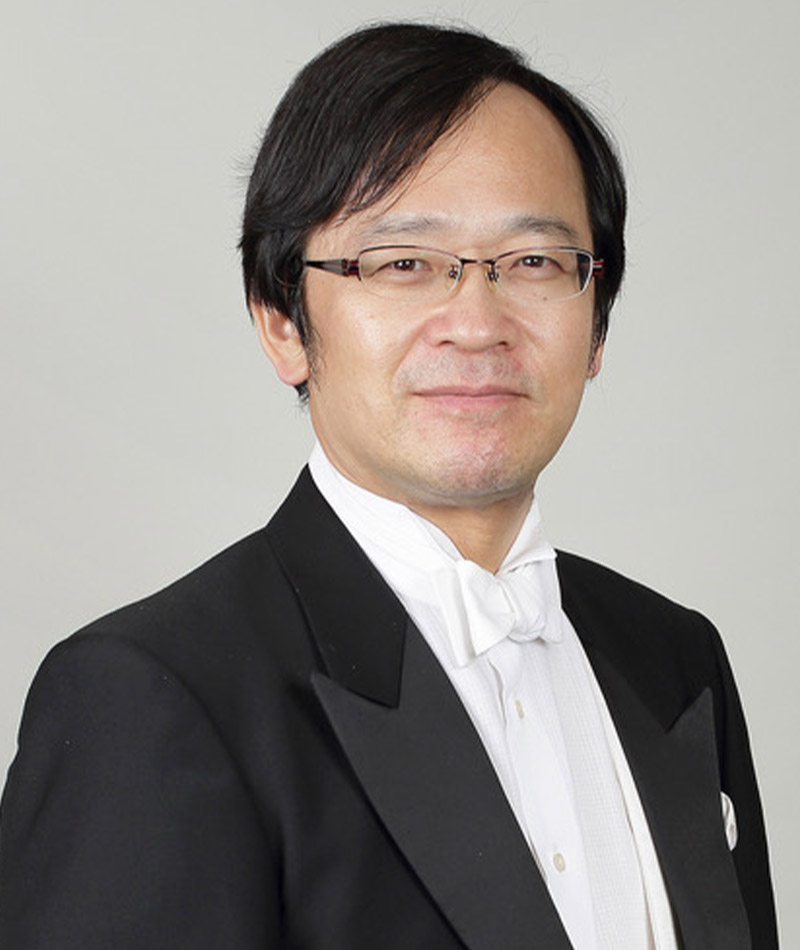
Arai studied under Kyoko Suzuki and Toshiya Eto at the Toho Gakuen School of Music. He held posts in the Japan Shinsei Symphony Orchestra and Tokyo Symphony Orchestra, as well as served as the solo concertmaster for the Tokyo Philharmonic Orchestra for over 20 years. In 1992, he took part in forming the Morgaŭa Quartet, which, to this day, holds an established position as one of Japan’s defining string quartets with unrivalled programing and compelling performances of pieces, including the entire catalogue of Dmitri Shostakovich. In particular, their arrangements and captivating performances of progressive rock music have garnered enthusiastic support from rock music fans.
Arai is currently serving as the principal guest concertmaster for both the Japan Century Symphony Orchestra and the Nagoya Philharmonic Orchestra, and as a special guest concertmaster for the Tokyo City Philharmonic Orchestra. He is also a professor at the Tokyo College of Music.
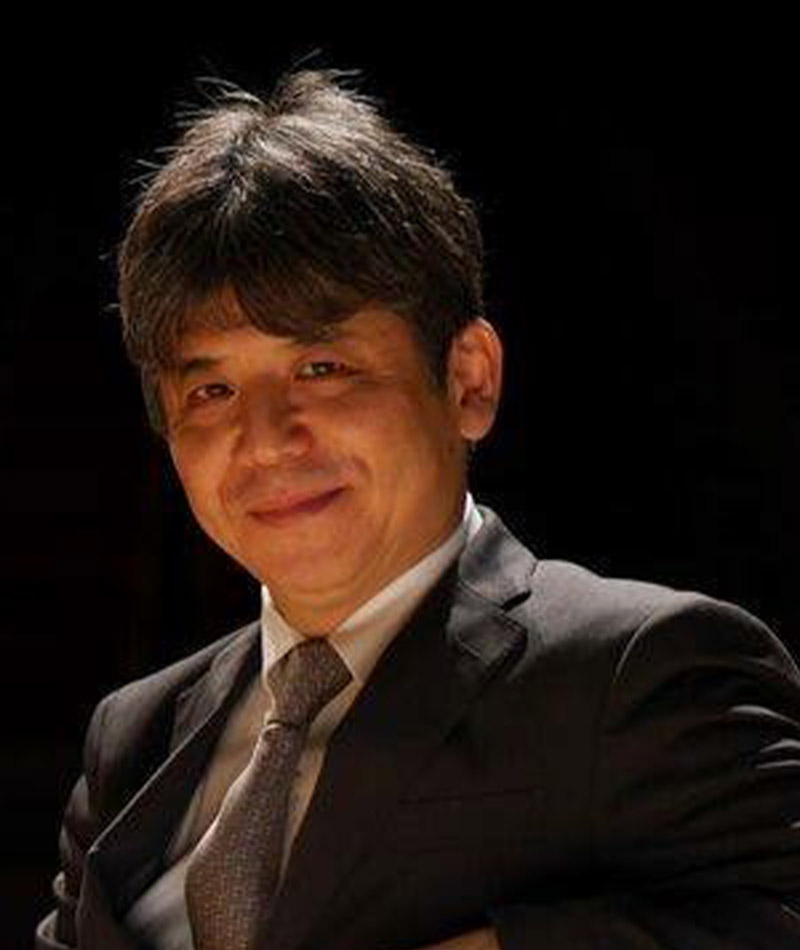
Toshio Hosokawa was born on 23 October, 1955 in Hiroshima. He has been to Germany to study composition for ten years since 1976, with Isang Yun at the Hochschule der Künste in Berlin and with Klaus Huber at the Staatliche Hochschule für Musik in Freiburg.
In 1980, Hosokawa participated for the first time in the Internationale Ferienkurse für Neue Musik in Darmstadt. Since then, he has been working on composition mainly in Europe and Japan, gaining a good reputation worldwide as one of the leading Japanese composers and being commissioned by the primary orchestras, the major music festivals and the significant opera theatres in Europe and America one after another.
His second opera Hanjo commissioned by the Festival d’Aix-en-Provence in 2004 (Anne Teresa de Keersmaeker, staging), his orchestral work Circulating Ocean, commissioned by the Salzburg Festival in 2005 (premièred by the Wiener Philharmoniker), Woven Dreams, an award-winning work of the 5th Roche commissions in 2008 (for the Lucerne Festival and the Carnegie Hall, premièred by Cleveland Orchestra at the Lucerne Festival in 2010, won the British Composer Awards 2013), his third opera Matsukaze commissioned by La Monnaie in 2011 (Sasha Waltz, staging), The Raven commissioned by United Instruments of Lucilin, Horn Concerto –Moment of Blossoming–, co-commissioned by Berliner Philharmoniker, the Barbican Centre London and Concertgebouw Amsterdam (premièred by the Berliner Philharmoniker in 2011) and many others were premièred under the baton of the world’s leading conductor, for example, Kazushi Ono, Jun Märkl, Kent Nagano, Sir Simon Rattle, Robin Ticciati, Franz Welser-Möst, and so on. Many of these mentioned works have been performed as an important repertoire in each genre.
In 2001, Hosokawa became a member of Akademie der Künste, Berlin. He was Composer-in-Residence with Tokyo Symphony Orchestra in the 1998-2007 season, with Deutsches Symphonie Orchester Berlin in the 2006/2007 season, with WDR Rundfunkchor Köln in the seasons 2006-2008, and with Nederlands Philharmonisch Orkest in the 2013/2014 season. In 2006/2007 and again in 2008/2009 he was invited as one of the Fellows by Wissenschaftskolleg zu Berlin. In 2012, he was elected to a member of Bayerische Akademie der Schönen Künste, München, and received the Medal of Honour with Purple Ribbon from the Goverment of Japan in Autumn. In 2018, he received The Japan Foundation Awards. He also received the Goethe Medal in 2021.
Currently, he serves as Music Director for the Takefu International Music Festival, a guest professor at Tokyo College of Music and at Elisabeth University of Music. Composer-in-Residence with Hiroshima Symphony Orchestra in the 2020-2023 season, Composer in Residence with Tonhalle Orchestra Zurich in the 2022-2023.
(as of 7 June 2021)
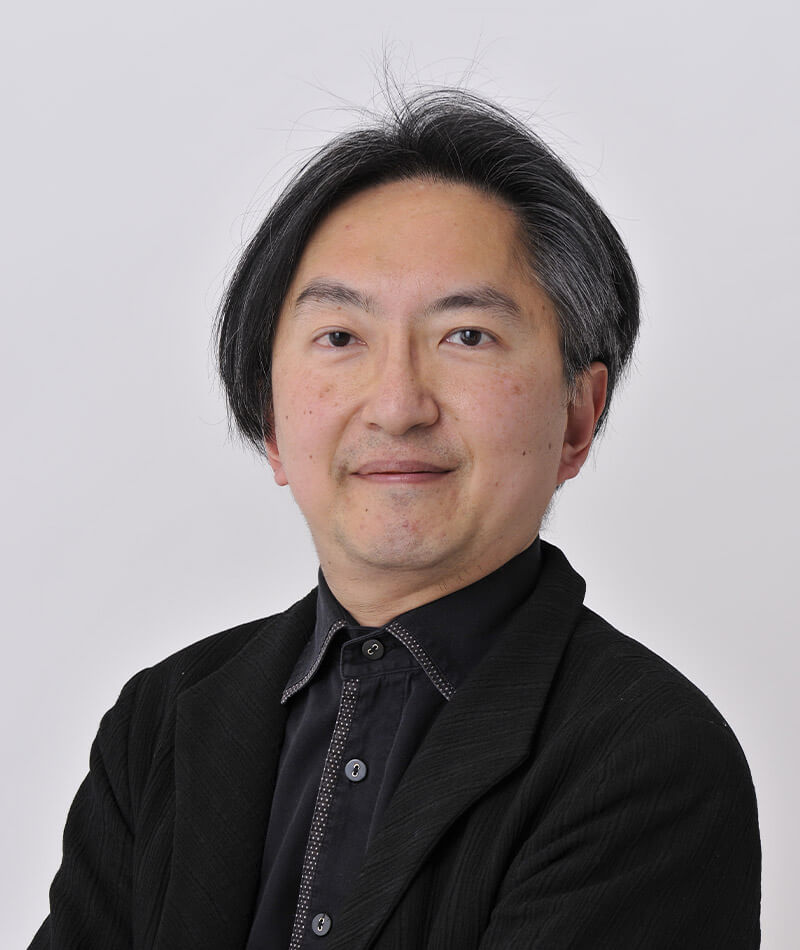
Since he was young, Katayama published music criticism in numerous magazines and newspapers, including the Asahi Shimbun, the Sankei Shimbun, Record Geijutsu, CD Journal, and more. He is currently in charge of writing a regular column in the weekly Shūkan Shinchō magazine and classical music reviews for the Asahi Shimbun. A multifaceted talent across the board, Katayama is also a radio DJ for Kurashikku-no-Meikyū (Classical Labyrinth) every Saturday on NHK-FM, has written books on music, and appeared on television.
For the first time in his career, well-known music critic Katayama now serves as the director of the Mihara Performing Arts Center POPOLO (in Mihara City, Hiroshima), a music facility. His appointment as director attracted a great deal of attention not only in music media, but in mass media as well.
His relationship with Mihara City goes back to 2010, when Katayama served an instructor for a cultural volunteer training program at POPOLO for seven years, contributing greatly to the development of local volunteers.